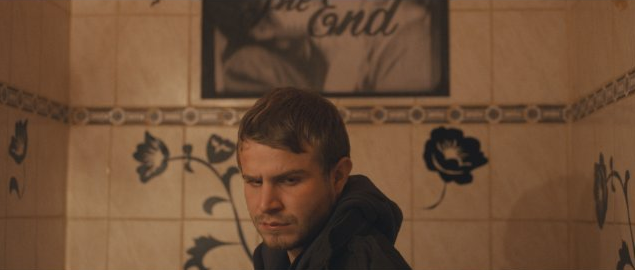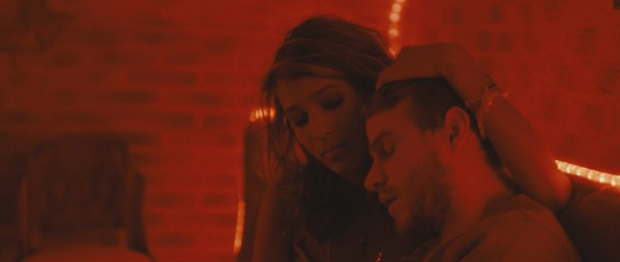Before Sean Durkin took Sundance by storm last year with his deeply affecting psychological thriller Martha Marcy May Marlene, he and his production team at Borderline Films (made up of Durkin, Antonio Campos and Josh Mond) had wrapped another feature. Shot on-location in Paris and unveiled just over a year later, Simon Killer, the sophomore effort from Afterschool director Antonio Campos, continues in the filmmaking trio’s series of dark, gripping character studies.
Brady Corbet is Simon, a heartbroken, confused college graduate who arrives in Paris with no plans other than to visit art galleries, tourist spots and ponder over a freshly expired five-year relationship. With a sense of bitter loneliness and his iPod in hand, we follow him around the city of lights, bumming cigarettes and trying to establish any sort of human contact. Back in his hotel room, he masturbates and writes detailed letters to his past love.
While walking the streets one night, he encounters an easy, feeble solution to his problem, and enters a whorehouse. Meeting a prostitute named Victoria (Mati Diop, break-out star of Claire Denis‘ 35 Shots of Rum), the two pursue a relationship that extends beyond her work obligations. From here, the downward spiral of poor decisions begin as the layers of Simon’s psyche peel away.
Although we are in the beautiful city of Paris, Campos only has a select few establishing shots; the camera stays tight on Corbet, shot beautifully by Joe Anderson. This unflinching viewpoint, along with Campos’ slow-burn style (there’s more vibrance and scope here than in Afterschool), makes it impossible to avert your eyes. Giving us a release from traumatic events, Campos fades in transfixing strobe effects until they occupy the entire screen, fracturing our vision just as Simon becomes less and less of a reliable narrator.
Our protagonist is not good-natured or likable; as his actions becoming increasingly abhorrent, his connection with the audience unravels. But Campos isn’t interested in crafting a hero; he’s peering inside the fractured mind of a sociopath coming of age. Whether it be Ezra Miller in Afterschool or Elizabeth Olsen in Martha Marcy, these filmmakers have an exemplary skill at taking a deeply-damaged youth and placing us right into their alarming mindset. Campos makes sure every single camera angle, music cue and line of dialogue only further brings us into the abyss.
The camera is locked on to Simon for much of the film, as Corbet finally steps into the spotlight with the lead role he’s been waiting for. With an unshaven scruffy look, he is tasked with bringing us into his world (doing so immediately in an exemplary one-shot giving us all the exposition we need), and then slowly betraying our trust as he carries through to the inevitable outcome of destruction.
Late in the film, there is a moment of uncomfortable bliss in a night club, as Simon has finally achieved a connection that occurs too far into his descending journey. We hate him for his actions, yet are captivated by what he’ll do next. Thanks to Corbet’s phenomenal performance, this notion running throughout makes Simon Killer a beguiling, vexing follow-up for Campos, one that has already divided audiences. And while the graphic nature may be too much for substantial theatrical distribution, it’ll continue to garner curious word-of-mouth on the festival circuit.


